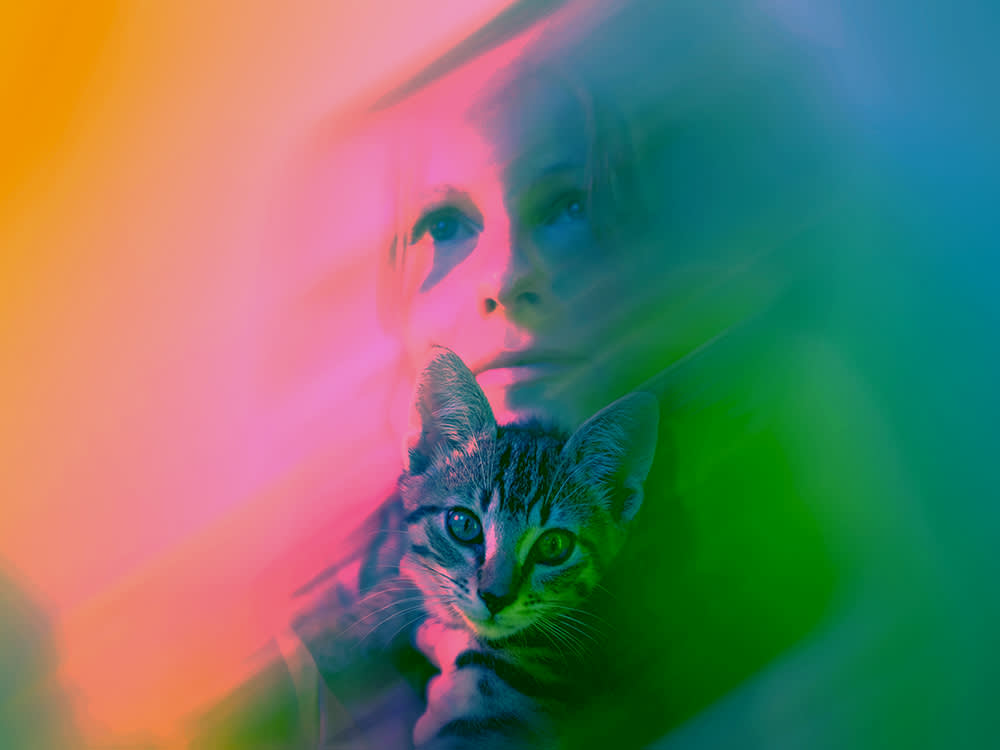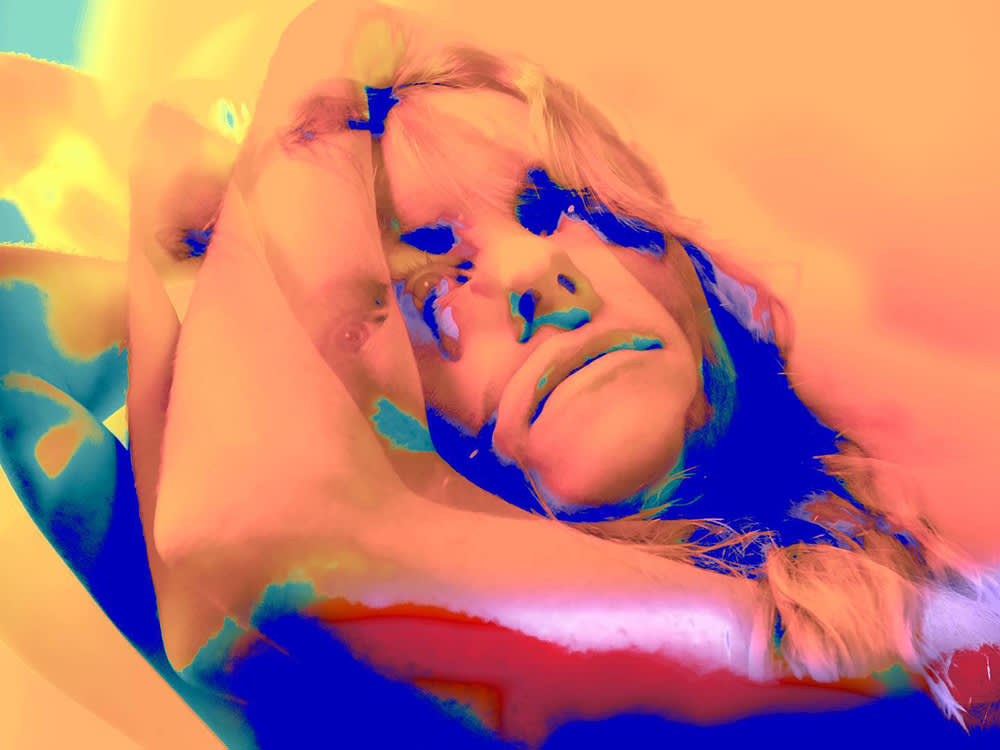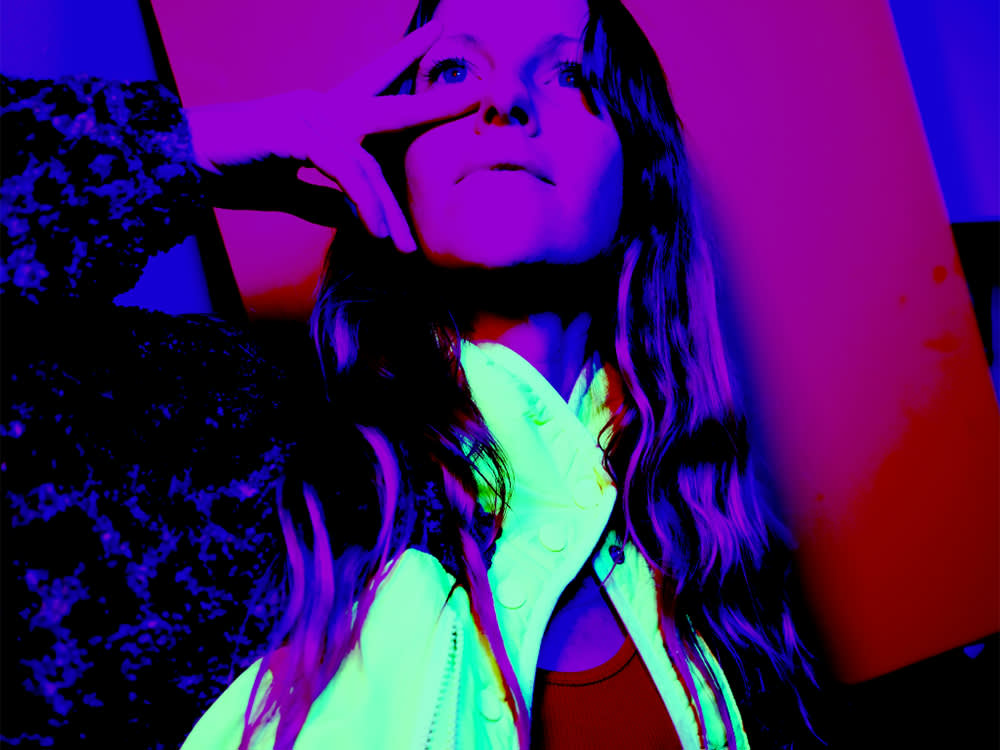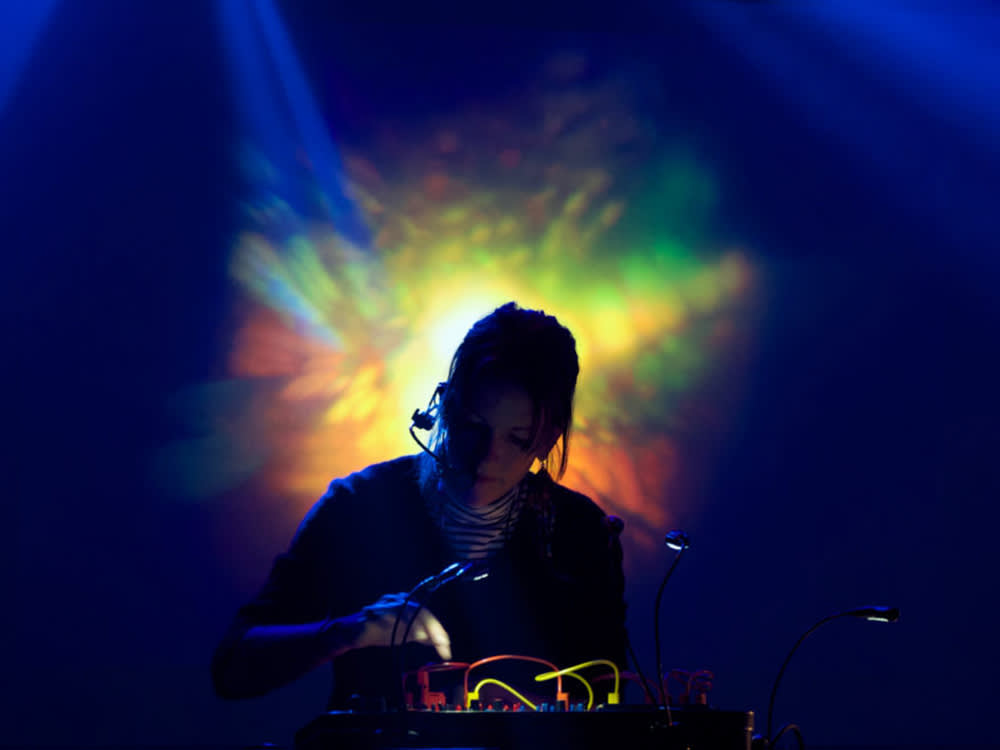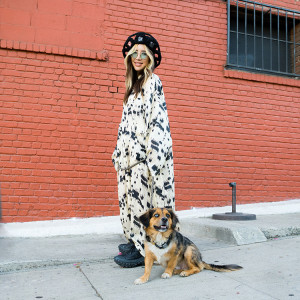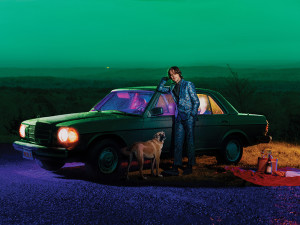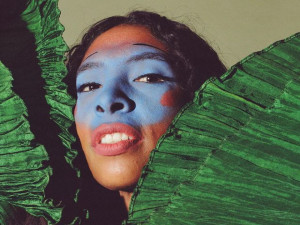Kaitlyn Aurelia Smith’s Transcendent Music Is Inspired By the Language of Cats
Her serendipitous cat adoption story is just as otherworldly.
Kaitlyn Aurelia Smithopens in new tab’s story of adopting her cat, Clover, sounds like a fairytale at every turn. One day, she had the sudden urge to run out to do errands, and she followed her instincts.
“I went outside not actually knowing why I was going outside,” Smith says. She suddenly encountered a woman with a tiny kitten on her shoulder — and when Smith asked if she could pet the cat, the woman asked if Smith was interested in adopting them. Smith agreed. And they lived happily ever after — the end. Well, there’s actually a lot of really good stuff after that, so let’s get into it.
If you know Smith’s work, the story of her cat’s adoption probably sounds bizarrely fitting to the magical and magnetic qualities of her music. Her many albums, singles, and collaborations primarily utilize a Buchla synthesizer to create enchanting songs beyond the reach of language. Smith’s most recent album, Let’s Turn It Into Sound, released in August, is told from the perspective of six different inner voices that convey a range of emotions without saying a word. This way of communicating is a powerful ability of Smith’s that brings her closer to animals, who teach her something new every day.
She fills the Kinship in on her music, her mystical cat, and how the two go together.
How much do you spend on your pet per year?
The story of Clover’s adoption is so magical. It sounds like you encountered a witch in a fable.
I know. It was so special. She truly is the cat of my dreams. She’s simultaneously an outdoor cat and an indoor cat, and during the day she’s very autonomous — super wild, a mega tree climber — and then at night time she’s very cuddly. She sleeps with me the whole night in my armpit or on my neck.
I think the lady who I got her from often has kittens. I live on an island right now, and she brought them to find if anyone would wanna take her home. I don’t know exactly what kind of cat she is, but I think she’s a Bengal or partly Bengal; she has the markings, and she’s very talkative.
Did you grow up with pets?
I grew up with a pet Parakeet that was my best friend. It would ride on my shoulder everywhere and it would sleep under the covers with me. And lots of cats. I think we had four cats when I was a kid. And two dogs. I also grew up around horses.
Have your pets had any influence on you creatively?
I actually dedicated my most recent album to my cat. I feel like she teaches me a lot — she surprises me all the time with what I think is possible. She’s one of the most athletic cats I’ve ever seen, and her tree climbing really blows my mind. She does, like, parkour. Every time I would feel a little limited in my beliefs of what I could do, I’d see her run by and jump from a tree to another tree and sprint down a hill.
Does she go with you on tour?
I don’t think she’d be down with it. When she was kitten, I started her on a leash, and I have ridiculous photos of me trying to take her out a leash. But she quickly transitioned into a wildcat, and I feel like she wouldn’t be down with all the travel.
You’ve spoken about how your music has a lot to do with what can’t be expressed through spoken language. Can you speak to how that perspective has affected your relationship with animals and nature?
I feel like a lot of the album came from my relationship with Clover. I think this is typical of Bengal cats: she has a really wide vocabulary. She has so many meows. They all communicate exactly what they sound like they’re communicating. It really brought my attention to how much can be communicated through sound and not through words. She’d do a certain meow that was like, “Open this so I can get behind this and inside this.” It almost sounded like a sentence, there were so many meows. But I’d understand.
How does she respond to your music?
She actually really doesn’t like when I sing. She does this really funny meow and she leaves the room. And she doesn’t really care about the synthesizer sounds; she’ll just kind of lay on my lap. There are certain sounds I make with my voice to be kind of goofy that she’s really activated by.
Why were you drawn to the synthesizer as your primary instrument?
I think it was a combination of the versatility and independence. I always wanted to write for orchestras, and when I left college, I didn’t have access to an orchestra anymore. Then I found synthesizers, and it felt like an orchestra inside of a box that I could spend a lot more time with than an orchestra, and I could record myself, and it was a lot more affordable. The biggest thing that really won me over was the comedy that I felt from sounds. I’ll just giggle to myself for hours playing synthesizer because it can make such funny sounds.
How did the concept of the six different voices speaking through your album form?
It plays off of the way that it seems like our psyche as humans is built. This is just from readings that I’ve read about Internal Family Systems and different psychology approaches where it’s about how we’re made of many parts and we have many characters inside of us. The concept was to really create different voices for those characters and let them all tell a story, instead of just mega-Kaitlin talking.
What do you want people to take away from Let’s Turn It Into Sound?
I guess what I got from it and what I continue to get from it as I play it live is a feeling that I haven’t found words for yet. It’s this very playful sassiness that’s like, sentimental sass. The main place I’ve gotten this feeling from beside this album is another thing that inspired this album, which is the vogue dance community. I have so much deep respect and admiration for the vogue community. The inspiration I got from going to vogue shows and following different vogue dancers is imbued in this album as well. I’m not sure how to put it into words. I guess that’s why I made it.
